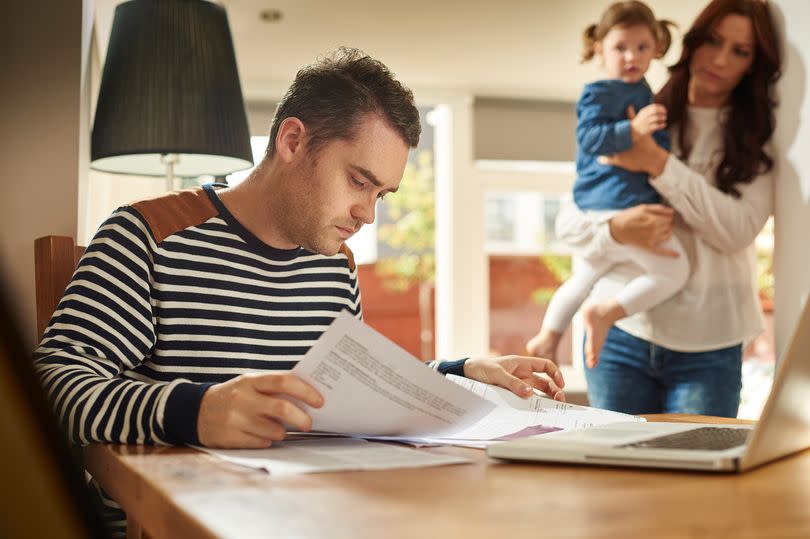What Labour winning the General Election means for your money - from tax to pensions

Labour has emerged victorious in the General Election - but now all eyes will be on whether they can deliver on their manifesto promises and what new measures could be announced.
The cost of living crisis has left hard-working families feeling the pinch, with households desperate for relief from soaring prices and escalating mortgage costs. The dream of owning a home is also a pressing concern for many Brits, who feel it has become an unattainable aspiration for many.
There's plenty to dissect in Labour's manifesto regarding taxes and housing, and we also break down what it means for your pension and employment, reports the Mirror.
Tax
Labour has committed to not raising Income Tax or National Insurance, but the threshold for when you start paying tax will remain frozen until 2028. This implies that more people will find themselves paying tax as they begin to earn more money, either through pay rises or securing a better paid job.
The basic rate of Income Tax stands at 20% and is levied on annual earnings between £12,571 and £50,270, then you pay 40% on earnings between £50,271 and £125,140. You're also liable for National Insurance if you're an employee earning above £12,570.
Currently, you pay 8% on earnings between £12,570 and £50,270 in Class 1 National Insurance contributions, and for earnings above this amount, you pay 2%.
Pensions
Labour has pledged to maintain the triple lock, ensuring that the state pension continues to rise annually. The triple lock guarantees that each April, the state pension will increase by the highest of either inflation (based on the previous September's figure), wage growth (average increase between May and July), or 2.5%.
However, many pensioners may still face higher taxes as the full new state pension is expected to reach nearly £12,000 next year, which is close to the current £12,570 tax-free personal allowance. Labour has abandoned a proposal to reintroduce a cap on the amount individuals can save into their pensions before being taxed.
The pensions lifetime allowance was abolished in April, resulting in pension pots worth over £1.07 million facing an average annual tax of £40,000. Labour has also committed to "review the current state of the pensions and retirement savings landscape", although the specifics of this review are not yet known.
Regarding minimum wage and employment, Labour has promised to extend the minimum wage to younger individuals. The Tories have already expanded the full minimum wage to those aged 21, where previously it was only applicable to those aged 23 or older - but Labour aims to reduce this age limit further to 18.
Under the current pay scale, workers aged 21 and over earn a minimum wage of £11.44 an hour, while those aged between 18 to 20 are paid no less than £8.60 an hour. Labour also promises to put an end to zero-hour contracts, scrap "fire and rehire" schemes, and from day one, ensure rights to sick pay, parental leave, and protection from unfair dismissal.
Surging Household Bills
Countless families are grappling with soaring energy bills, exacerbated by the Covid crisis and the Russian invasion of Ukraine. It's under these unprecedented circumstances that Labour aspires to establish Great British Energy a public enterprise expected to trim down bills.
This corporation, based in Scotland, is set to be financed through applying a windfall tax on North Sea energy firms.
The party also publicises its intent to slash energy bills, aiming to alleviate fuel poverty by compelling all landlords to conform to energy efficiency benchmarks by 2030.
Water companies discharging sewage illegally could face higher penalties under Labour, with bosses potentially stripped of their bonuses and facing criminal charges. On average, water bills stand at about £448 annually in England and Wales, as per Water UK.
Housing and Renting Policy
With its ambition to construct 1.5 million additional homes within the next half-decade, Labour pledges major changes in planning regulations and the improvement of sub-par areas in the green belt. The party is also committed to introducing a permanent Freedom to Buy scheme in substitute for the existing mortgage guarantee scheme, which is scheduled to wrap up in June 2025.
The mortgage guarantee scheme allows first-time buyers to secure a mortgage with just a 5% deposit, with the Government pledging to cover some costs if the lender incurs losses. This is particularly appealing for those with smaller deposits looking to step onto the property ladder, despite criticisms of higher rates compared to larger deposit home loans.
Labour has also vowed to prioritise local residents for new developments, abolish the leasehold system and address unaffordable ground rents. For renters, the party has committed to banning no-fault evictions and making it more difficult for landlords to evict tenants without valid justification.

 Yahoo News
Yahoo News 
